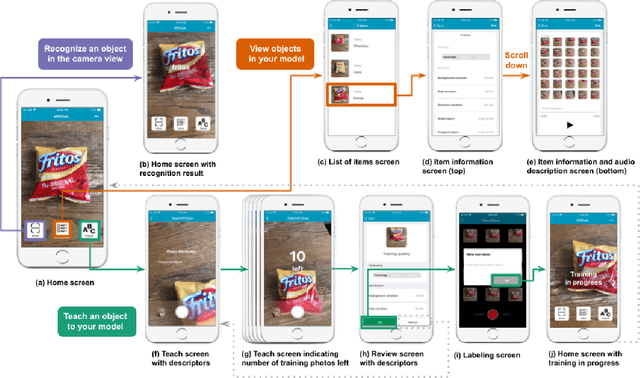Blind Users Accessing Their Training Images in Teachable Object Recognizers
Paper and Code
Aug 16, 2022



Iteration of training and evaluating a machine learning model is an important process to improve its performance. However, while teachable interfaces enable blind users to train and test an object recognizer with photos taken in their distinctive environment, accessibility of training iteration and evaluation steps has received little attention. Iteration assumes visual inspection of the training photos, which is inaccessible for blind users. We explore this challenge through MyCam, a mobile app that incorporates automatically estimated descriptors for non-visual access to the photos in the users' training sets. We explore how blind participants (N=12) interact with MyCam and the descriptors through an evaluation study in their homes. We demonstrate that the real-time photo-level descriptors enabled blind users to reduce photos with cropped objects, and that participants could add more variations by iterating through and accessing the quality of their training sets. Also, Participants found the app simple to use indicating that they could effectively train it and that the descriptors were useful. However, subjective responses were not reflected in the performance of their models, partially due to little variation in training and cluttered backgrounds.
 Add to Chrome
Add to Chrome Add to Firefox
Add to Firefox Add to Edge
Add to Edge